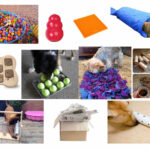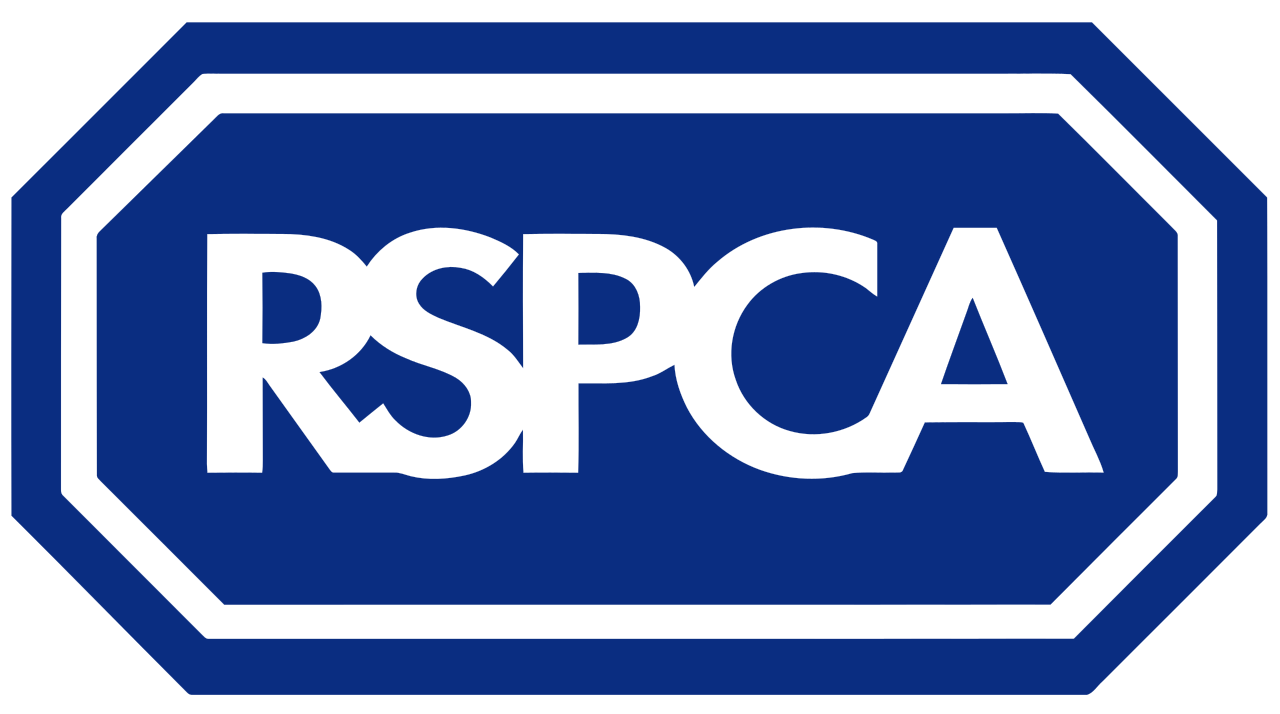We all love spending time with our dogs, but how can we make sure it is time well spent that enhances their quality of life and encourages them to reach their full potential?
Enrichment! That’s how! We also want to make sure we are giving our dogs opportunities to meet their own needs, and giving them opportunities to display natural dog behaviours, such as licking, sniffing, chewing, digging etc, but in a way that is appropriate to us. How do we do that I hear you ask? Yes that’s right, enrichment!
Sounds like fun!

Have a chat with your vet about your dog’s exercise requirements, because these may change during parts of their life, and in times of illness or injury. Don’t worry if they can’t have long walks, there are lots of fun things you can do to make the most of even a short walk! Make sure your dog is up to date with flea, worm and lungworm prevention.
Taking a different route, even if you’re just going out for a short time, will give your dog new experiences and in particular, smells! It’s easy for us humans to forget how important this is for our dogs so liven up your neighbourhood for them by going to different places.
Plan interactive walks. As well as allowing your dog ample opportunity to stretch their legs and to sniff, including activities like playing with toys, searching for food you’ve scattered or thrown for them, practising tricks in the park, laying treat-trails for them to follow.
If it’s safe to do so and you’ve checked they’re not likely to fall or lose balance, encouraging your dog to place their paws on objects or to balance on or walk along fallen trees for example can be an exciting way to liven up a walk. You can also teach them to run around lamp posts, post boxes or bins, or crawl beneath objects such as park benches. The possibilities are endless if you get creative.
Ditch the bowl
Dogs love eating, so they really enjoy food games. You don’t need to worry about your dog gaining weight, as you can split their daily food allowance into portions to use in different ways throughout each day.
There are lots of great puzzle-feeders available to buy, including rubber ones that can be pre-filled and chilled to make them last longer and that you can have pre prepared. You could also get creative and make your own. When you’re recycling, keep anything that is safe for your dog to use. Think, pieces of their dry food hidden within scrunched up newspaper, inside cardboard boxes, or empty plastic bottles (lids removed for safety) with their dry food or treats inside. Remember to supervise, just in case your dog needs help.
Scatter food inside or in the garden so that your dog can hunt for it. You can also lay trails of treats for your dog to follow and watch them sniff along.
Trick Training
Teach your dog new tricks using reward-based training. This type of mental exercise is as tiring as physical exercise! This is also a great way of improving the dog-owner relationship and giving nervous dogs more confidence.
You could teach them a hand target, to walk through your legs, run all the way around you, turn around on the spot in both directions, give a paw one at a time, pick things up and give them to you. See some of our training guides for tips and ideas.
Games with toys
Play uses physical energy, channels mental energy and builds confidence and relationships like nothing else.
Rotating toys is a good idea so they don’t become boring, as dogs often enjoy novelty. Swapping toys weekly means your dog is likely to stay excited and interested in them.
Dogs naturally want to use their mouths for holding, tugging and shaking toys. This is completely normal behaviour, but if you feel teeth on your skin/clothes at any point during the game then end the game right away by staying calm, quiet and moving away. Telling your dog off will only confuse them, as they might think they’re being told off for playing and not want to join in again.
They need to know they can only put their teeth onto the toy, so simply end the game any time their teeth make contact with you. After a short break, come back and play again.
It’s perfectly okay to let your dog win the game! Dogs can enjoy taking turns so making sure you both win will create a balanced play session! It’s also okay for dogs to rip soft toys up, as this is natural behaviour. Just make sure you’re supervising so they don’t swallow any small bits and always give them a tasty treat or two
when you’re taking away bits of their toys, so they don’t worry about this.
Environmental enrichment
Dogs can benefit from having the opportunity to experience different environments as these have different sights, sounds and smells to stimulate their senses. Visiting and exploring brand new places can be thoroughly enjoyable for them. Just make sure they’re always enjoying themselves and if they ever show any sign of becoming worried by something they see, hear or smell, calmly lead them away.
Think about giving your dog the opportunity to walk on different surfaces, smell and even taste new things (make sure whatever you’re giving your dog is safe for them!) and see which kinds of places they seem to enjoy most – is it the woods or the beach for example?
Just make sure they’re comfortable travelling if you’re heading off on a long investigative adventure!
Water can be great fun, as long as your dog is comfortable and feels safe, so take it gently to begin with. You can use things like shallow paddling pools in the garden to give your dog different experiences and playtimes!
Enrichment through choice within the home
We can also enrich our dog’s life by giving them choices, where safe and appropriate, within their personal surroundings. For example, you might have bought them a lovely dog bed, yet they still choose to sleep on the rug… as long as they’re safe, letting them make these kinds of choices will give them confidence and add to their quality of life. Providing suitable outlets for your dog’s energy will help keep them from getting into mischief at home!
Meeting their needs, but in an appropriate way
It is important to remember that dogs have their own way of interacting with the world and some behaviours that we may view as “problem behaviours”, are perfectly normal for dogs and should not be discouraged or punished.
These behaviours include sniffing, licking, chewing, digging etc. Of course, our dog digging up our rose bed, or chewing up the legs of our dining room table, is not ideal, so what can we do to make sure these needs are met, but without destroying our house?
First we need to ask “why”? Why is our dog doing that, what are they getting out of it? For example, if our dog is chewing a table leg, it may be because they enjoy the unique texture that wood provides, which is hard but soft at the same time. So to meet this need and imitate that texture, you could offer your dog a chew root or an antler. You can make these items more valuable than your table leg, by smearing them in cream cheese or dog safe peanut butter, to encourage your dog to use that instead.
Another example of this is digging. If your dog is digging up your flowers, try to meet that digging need, by providing your dog with a sandpit or ball pit. Make this area more valuable than your flower beds, by hiding their treats and toys in the sand and ball pits and get involved and play with your dog. This should help keep your flowers safe and your dog happy.
Time to calm down
Items such as licky matts, snuffle matts, Kongs etc, are great for keeping your dogs busy when you need to do something else, such as sit down to your favourite TV show, eat your dinner, or when you need to leave them at home whilst you pop out. These items, and other similar items and activities, are also great to calm your dogs down after a play session or a walk etc, or even if you have a puppy who is having an over excitable chewing and mouthing episode and needs a nice calming activity to keep them busy and to help them wind down. Offering puppies wet food frozen in a kong is also wonderful for helping soothe their mouths during teething.
Doing lots of activities that you can both enjoy together will enhance your bond and build your dog’s confidence, helping to prevent unwanted behaviours!
If you need further help, you can find a dog trainer here: https://abtc.org.uk

